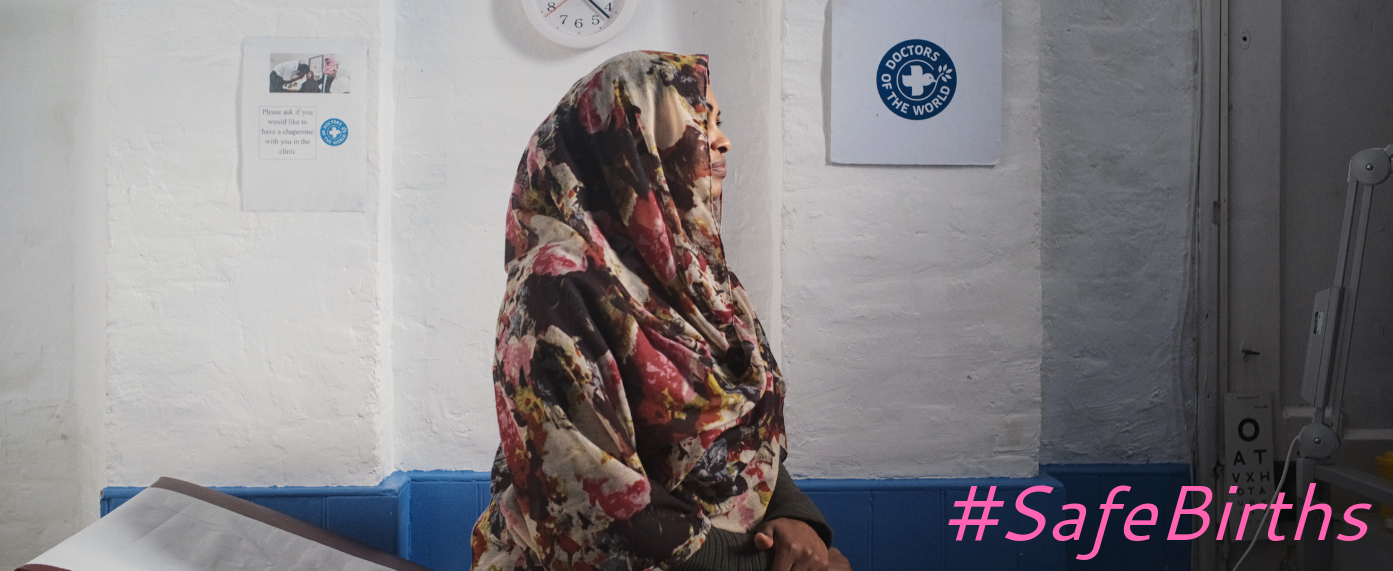Day Six #SafeBirths – Ellen
Published 1st December 2018
She can’t wait for the debate
Ellen Waters is the Director of Development at Doctors of the World.
Working with women and mothers or mums to be is a central part of the work that we do at Doctors of the World internationally but also here in the UK.
We are the UK part of the international network Médecins du Monde, which is about to start a global project tackling gender-based violence (GBV). GBV has a particularly big impact on women and mothers to be, and we often hear appalling stories about it from the women that we see in our UK and overseas clinics, as well as those we meet in refugee camps. Sometimes, the pregnancies we are discussing can be due to a lack of knowledge about or access to family planning services but too often they are a result of rape.
The vulnerability of women and children comes to the forefront whenever there’s a humanitarian emergency or conflict. They often need to be prioritised when planning our work, as we saw last year during the widespread famine in Kenya. Our programme there focused mainly on identifying severe acute malnutrition, which meant that we were looking at and treating children under five years old. Identifying and treating malnutrition in that age group is particularly urgent. If it is left untreated, it can lead to developmental problems and a lasting impact on wellbeing. We were targeting children and pregnant mothers to make sure that early development was protected.
Whether it is in Kenya or the UK, the special attention on pregnant mothers and children is borne out of their unique needs. When we set up our London clinic, we did not expect to have a separate women and children’s unit. It was established for anyone struggling to access healthcare. But over time we recognised that there were many women who needed special support, or address gender specific health needs and bringing them into the general clinic wasn’t a suitable solution for a range of sensitivities, or cultural norms,
I hear horrific stories from the doctors at the clinic about women who have found themselves pregnant and alone with no family around, and who were too frightened to see a doctor until they heard about our clinic. They were preparing to give birth alone, without knowing if their baby is healthy. A moment in life that can be so joyful for so many people can sometimes be the most terrifying and lonely for others. I think about when my friends were having babies and how worried and nervous they were, even though they had their families nearby to support them, and they could also just pop into the doctor for a bit of information, care or reassurance. I can’t imagine what it must be like for anyone to not have that.
I think even having one expectant mother come into our clinic, in labour thinking that she’s going to give birth to her child there because she has nowhere else to go, and she’s had no advice at all, is completely unacceptable. It’s something that we can easily do something about.
We feel very passionate about this.
I can sometimes sit and talk with a stranger about a service user at the clinic who’s got cancer, and the response may be: well, they should go home. The discussion can be protracted or personal and very politicized and polarized.
